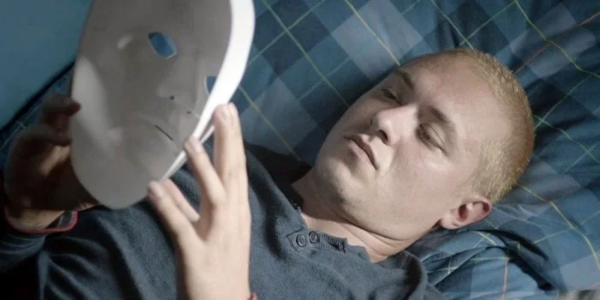
Jump to the good stuff: The Story | Some Thoughts | The Final Verdict
The Story:
Beyto is a romantic drama about a young man whose family discovers that he’s gay and forces him to marry a woman against his will.
Beyto (Burak Ates) is a young man from Turkey living in Switzerland with his mother, Narin (Beren Tuna), and father, Seyit (Serkan Tastemur). He’s the perfect son, helping his parents out in the Turkish restaurant they own while going to school and swimming competitively.
The neighborhood Beyto lives in is steeped in Turkish culture, which isn’t accepting of the LGBT community. So Beyto, who is gay, stays in the closet. When he starts dating his swimming coach, Mike (Dimitri Stapfer), his life gets a bit more complicated.
While marching in the local Gay Pride Parade with Mike, two of Narin’s friends notice him and tell her. Narin insists that Beyto was not at the parade, and that he’s not gay. She later tells Seyit, and they confront Beyto. Beyto confesses that he’s in love with Mike, and it doesn’t go well.
Distraught about the shame that having a gay son will bring to their family, Narin and Seyit decide to marry Beyto off during their annual family trip to Turkey. Beyto’s childhood friend, Seher (Ecem Aydin), who is single, lives in Turkey, so they secretly make arrangements for them to marry.
When Beyto decides to skip the annual trip, they tell him that his grandmother’s health is failing, and she wants to see him one more time before she passes. Unaware of the lie and that his parents plan for him to marry Seher, he agrees. And with that, the drama begins.
Some Thoughts:
At its heart, Beyto is about the clash between tradition and modern cultures. All of Beyto’s family and friends’ lives are immersed in traditional Turkish culture. When Beyto is home, all you can see are Turkish decorations, pictures, clothes, and people. His parents, Narin and Seyit, own a restaurant that sells traditional Turkish food. Mike represents modern culture. The scenes he’s in lack all cultural references. And Beyto is caught between the two, which gives validity to the story of his parents secretly marrying him off.
Although Beyto is well acted and filmed, Beyto and Mike lack chemistry. Their relationship has all the passion of a casual hookup. And because so little time is spent developing their romance, it feels forced. Not only do Beyto and Mike instantly fall in love, but Beyto seems to have no difficulties with accepting that he’s gay. Coming from a culture that doesn’t accept homosexuality, this feels a bit odd.
As a character, Seher is more rounded than Beyto. Since she and Beyto grew up together, she feels comfortable around him. She’s also too engrossed in the marriage ceremony to notice Beyto’s lack of interest until it’s over. Her confusion as to why he’s so distant is understandable, as is her fear of being shunned by society if he walks away. And because of that, it often feels as if she has much more to lose. Also, because Seher is a much more rounded character than Beyto, I found her story more interesting.
The Final Verdict:
While Beyto has an interesting premise, the insta-romance and lack of chemistry between Beyto and Mike make this a difficult film to recommend.



